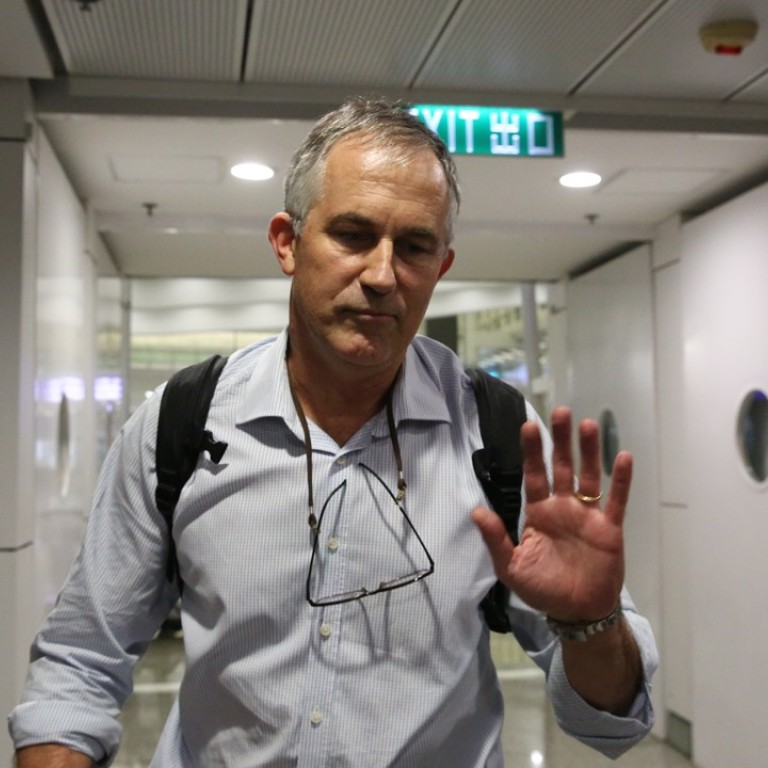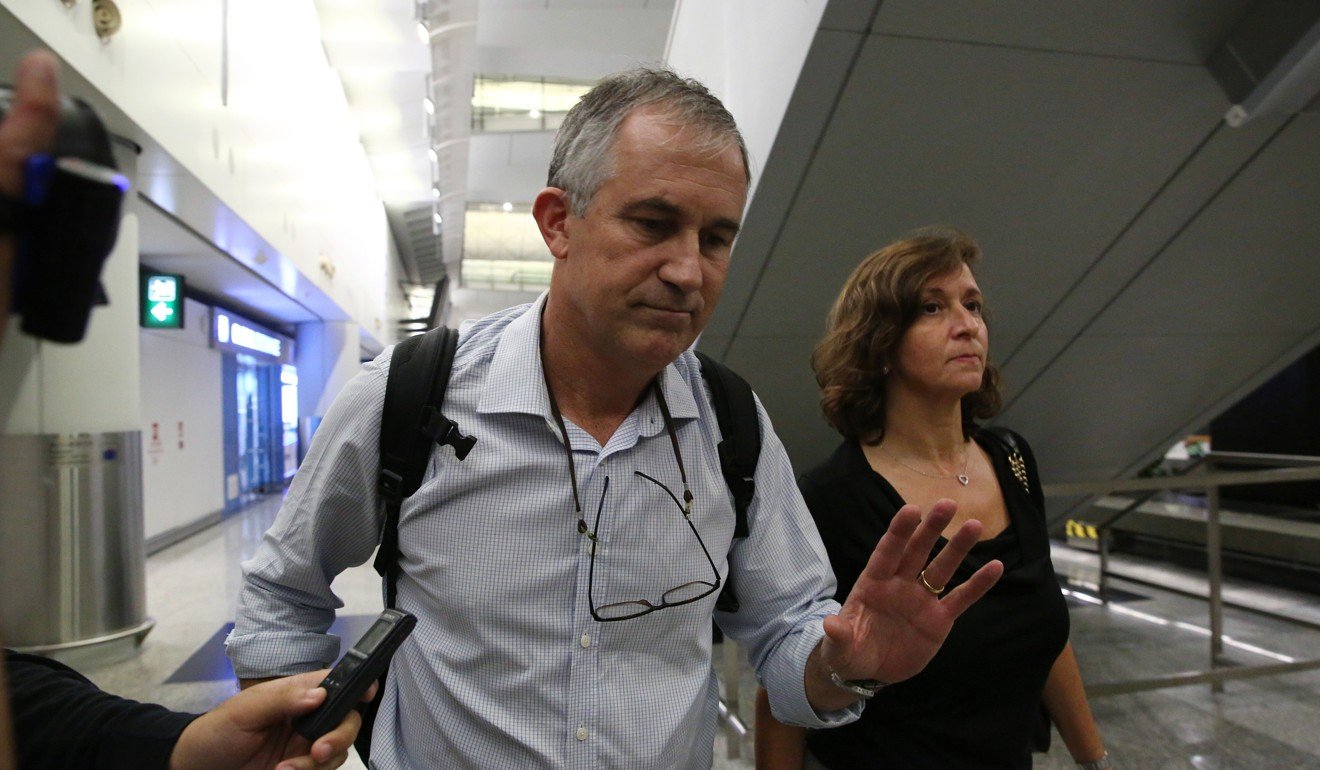
British journalist Victor Mallet denied entry to Hong Kong as tourist
- Former Financial Times editor was turned away after nearly four hours of questioning, with ‘no explanation given’ by authorities
Veteran British journalist Victor Mallet, who was earlier denied a work visa by Hong Kong immigration authorities, was barred from entering the city as a visitor on Thursday evening.
The Post has learned that Mallet was turned away after being questioned by officials for nearly four hours. The Financial Times journalist was asked the purpose of his visit and pressed for details about his business and personal meetings in town.
“It’s correct that I have been denied entry even for a visit,” Mallet said via text message. “No explanation given.”
The Immigration Department’s decision sparked major controversy and concern over press freedom in the city. It has refused to give any explanation for the move.
Florence de Changy, president of the FCC, said on Thursday that Mallet had been hoping to join the group’s board meeting next Saturday.
“He was hoping to come … so he could resign properly,” de Changy said.

Mallet has been the vice-president of the FCC since 2017. It is understood that his visit was also related to handing over his duties as his newspaper’s Asia news editor.
Late on Thursday night, 17 former presidents of the FCC jointly sent an open letter to Chief Executive Carrie Lam Cheng Yuet-ngor urging the government to offer a complete public explanation for Mallet's de facto expulsion.
“We respectfully request the Hong Kong authorities publicly and without caveat clarify whether the Foreign Correspondents’ Club will continue to be respected as a neutral venue where all people and legitimate and legal parties can openly express their views,” the letter read.
It’s correct that I have been denied entry even for a visit
“Without any public explanation from the Hong Kong authorities, we can only surmise this unprecedented action was official retribution against the FCC for holding a legal event on August 14 with Mr Andy Chan, whose political party was subsequently banned and whose views are anathema to the Hong Kong authorities and the central government in Beijing.”
The former presidents also warned that the government’s action threw into doubt China’s commitment to the “one country, two systems” principle, under which the city was guaranteed a high degree of autonomy for 50 years after its handover from British rule in 1997.
The club added in a statement: “This action places journalists working in Hong Kong in an opaque environment in which fear and self-censorship may replace the freedom and confidence essential to a free society, and guaranteed by the Basic Law.”
Mallet’s ban from entering the city came on the same day that British Minister of State for Asia and the Pacific Mark Field arrived in Hong Kong on an official visit.
The British foreign office said on Friday that Field would raise Mallet’s case as a “matter of urgency” with Hong Kong officials.
Field is expected to meet the city’s No 2 official, Chief Secretary Matthew Cheung Kin-chung, during his visit.
The ministry added it remained very concerned about the “unprecedented rejection” of Mallet's visa renewal and warned that the decision undermined Hong Kong’s freedom of speech and freedom of the press.
The United States also weighed in on the issue, saying it was deeply troubled by Mallet’s case.
“This decision is especially disturbing because it mirrors problems faced by international journalists on the mainland and appears inconsistent with the principles enshrined in the Basic Law,” a US State Department spokesperson said, referring to the city’s mini-constitution.
Reason for journalist’s visa denial to stay secret as Legco motion fails
Mallet was also grilled by immigration officers when he returned to the city from Thailand last month. He was given only seven days to leave the city last month after his visa refusal, although British tourists are normally granted permission to stay for six months.
In response to the development, pro-democracy lawmaker Au Nok-hin said Hong Kong authorities had been unwise in turning Mallet away.
“Should the Hong Kong government continue with these measures, it will bring consequences worse than what the trade war could do,” Au said. “It will appear that the city does not have room for free expression.”
Civic Party leader Alvin Yeung Ngok-kiu said Mallet was being treated like an enemy of the city.
“Unless and until a logical explanation is provided – and I am in doubt whether such explanation is at all available – the government is shamelessly harming Hong Kong’s reputation as a free and open city,” Yeung said.
Carrie Lam grilled in Japan on freedom of speech after Victor Mallet visa denial
A government source with knowledge of immigration policy said that even though Mallet had been allowed to stay for seven days last month, it did not mean he would be allowed in this time.
“Likewise, being denied entry this time doesn’t mean he will necessarily be barred from entry next time,” the source said, adding that border control matters were considered on a case-by-case basis.
Ma, who had been invited to the International Literary Festival, was supposed to introduce his latest novel, China Dream, which is critical of Beijing.
The Hong Kong government declined to comment on its denial of Mallet's entry request. The Post contacted the Financial Times for comment.




